
Thyme is an herb from genus Thymus, often used for culinary purposes and as a herbal remedy. Thyme is widely cultivated for its strong flavor. The herb was used in the times of Ancient Egyptians for embalming. Ancient Greeks believed that thyme was a source of courage, and used it as an incence in their temples.
Romans spread the thyme throughout Europe where it was used to give an aromatic flavor to cheese and liqueurs. Today, thyme is available both fresh and dried throughout the year. It is often used to flavor bean, egg and vegetable dishes. Thyme tea is another great way to enjoy health benefits of this herb. It is popular remedy for colds and flues, easy to make at home. One can purchase thyme tea at the store or use dried thyme. To make a tea, one should add a teaspoon of thyme for every cup of boiling water.
Health benefits of thyme tea
Thyme tea is often used as an herbal remedy for treatment of chest and respiratory problems including coughs, bronchitis, and chest congestion. Thyme tea can help to remove phlegm or mucus from the lungs and bring a significant relief to patient. The volatile oil components of thyme are the most responsible for its health benefits. These oils include carvacolo, borneol, geraniol, and thymol.
Thymol is the primary volatile oil in thyme can protect and increase the percentage of healthy fats in cell membranes. This property may protect the brain cells from aging and prevent age-related degenerative diseases.
Thyme is rich in flavonoids, potent antioxidants able to fight against free radicals, and further protect the body against cellular damage and resulting diseases.
Volatile oils from thyme are effective against various bacteria and fungi, such as Staphylococcus aureus, Bacillus subtilis, Escherichia coli and Shigella sonnei. In the ancient times, this herb was even used to preserve foods from microbial contamination.
Thyme is beneficial for various disorders of digestive tract, and it is useful in conditions like excessive flatulence, nausea, indigestion, colic and loss of appetite.
Thyme is an excellent source of iron, manganese, and vitamin K. It is also a very good source of calcium.
How to select and store
To get the maximum health benefits from thyme, one should choose fresh over dried form. Fresh thyme is superior in flavor and it contains more volatile oils.
Fresh leaves should be green-gray colored and free from dark spots or yellowing. When buying dried thyme, one should select organically grown and naturally dried herb. Fresh thyme should be stored in the refrigerator, while dried thyme should be kept in a tightly sealed glass jar in a cool, dark and dry place.



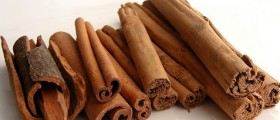


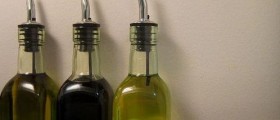
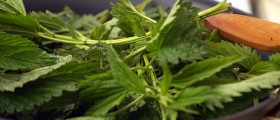





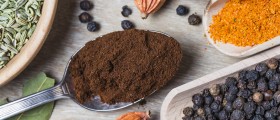
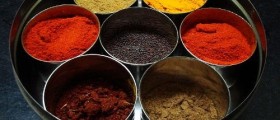


Your thoughts on this
Loading...